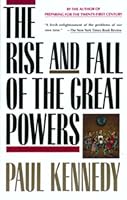Sublime
An inspiration engine for ideas



Europe’s expansion amounted in part to a deliberate assault on the modernizing ventures of other peoples and states. Perhaps it was not Europe’s modernity that triumphed, but its superior capacity for organized violence.
John Darwin • After Tamerlane: The Rise and Fall of Global Empires, 1400-2000
As the example of the late Soviet Union illustrated so well, until a few years ago it was possible for states to exercise great power in the world even while wasting resources on a massive scale. When returns to violence are high and rising, magnitude means more than efficiency. Larger entities tend to prevail over smaller ones. Those governments
... See moreJames Dale Davidson, Lord William Rees-Mogg • The Sovereign Individual: Mastering the Transition to the Information Age
Far from imagining a common supremacy over the rest of Eurasia, European statecraft was obsessed with intramural conflicts. Symptomatically, the wealth of the New World was used to finance the dynastic ambitions of the Old.
John Darwin • After Tamerlane: The Rise and Fall of Global Empires, 1400-2000
But the crucial fact of the equilibrium age was that no power in Europe was strong enough to dominate the others completely, or to embark upon a career of overseas conquest safe from the challenge of its European rivals.
John Darwin • After Tamerlane: The Rise and Fall of Global Empires, 1400-2000
The Best and the Brightest: Kennedy-Johnson Administrations (Modern Library)
amazon.com
Europe, as noted earlier, has in a short span of time gone from being the most predictable and stable region—one where history seemed to have truly ended (as suggested in an influential essay published in 1989 by the American political scientist Francis Fukuyama)—to something dramatically different. Democracy, prosperity, and peace all seemed
... See more